When Jim Boylen, the University of Utah’s head coach at the time, was in San Antonio in the spring of 2008 looking for an assistant coach, one thought kept on creeping into his head: He needed to hire Stan Johnson.
“(Johnson) just rose to the top of those guys,” Boylen said. “Every time I talked to a different person, I kept on thinking about Stan. I kept thinking about how he would be (working) with me.”
Boylen interviewed 17 candidates, including assistant coaches at PAC-12 and Missouri Valley schools, but Johnson, an assistant at a school that had never won a Division I postseason game, stood out.
Standing out is nothing new to Johnson, who is now in his fifth season as an assistant coach at Marquette and third as MU’s associate head coach. His recruiting prowess has helped Marquette men’s basketball rebuild itself into a borderline top-25 program.
“He’s one of the best recruiters in the country,” said Ryan Silver, the head coach of Under Armour-sponsored travel team West Coast Elite.
The reason? His personality. Just ask the people around the 40-year-old coach.
“He’s just a people-person and enjoys talking to people,” Long Beach State assistant coach Bobby Braswell said. “That put recruits and parents at ease when you have a guy like that on your staff.”
At a cafe about 10 minutes away from Los Angeles International Airport, Johnson’s recruiting prowess was on full display. There, he met Silver, who coaches for West Coast Elite. The club has produced some of the best talent in the Under Armour summer basketball circuit.
Members of last year’s WCE team have committed to Arizona, South Carolina, Buffalo and DePaul. Alumni from the previous class went to Oregon, Utah and Ole Miss. When Johnson walked into the beach-themed cafe, Silver listened.
“He builds trust with the kid because he cares about their lives,” Silver said.
Boylen, now the coach of the Chicago Bulls, pointed to one specific aspect of Johnson’s personality: his character.
“Character is what really matters in these positions,” Boylen said. “If you have character, you can learn. If you have character, you can build relationships. If you have character, you can honor the head coach.”
At Utah, Boylen said Johnson served as an excellent recruiter and basketball coach, fulfilling two important needs.
“I needed a recruiter and a coach,” Boylen said. “I wanted (an incoming player) to go into (an assistant’s) office for basketball too. Sometimes when the recruiting process is over, he might not go into that guy’s office.”
Boylen said Johnson’s selflessness stood out during the interview in San Antonio.
“He didn’t talk about himself,” Boylen said. “It was what we were going to do, how we were going to do it. He was very ‘we’ and ‘us.’”
Johnson’s personality meshed well with Boylen’s personality. While Boylen prided himself on being great at “closing the deal,” Johnson helped set Boylen “set the table.”
Much of this came from Johnson being “great on the phone,” as Boylen described it.
“He was way better of an over-the-phone guy than I was,” Boylen said. “He just has a feel for it. … He asks the right questions.”
After Johnson found out the three or four factors influencing a recruit’s decision, he would focus on those for the rest of the recruitment. That way, he said, it goes beyond just, “How are you doing?”
“Who’s involved with you?” Boylen said. “Who are you leaning toward? What’s important to you? Who’s going to make the decision with you? Who’s going to make your decision for you?”
By the time Boylen came to a recruit’s school or house, Johnson already told the prospect relevant information about Boylen. Boylen said that’s not always a guarantee in the college basketball world.
“If the dad asks a question like, ‘Did you ever coach in the pros?’ Well, yeah I did. He should know that already,” Boylen said. “I never had that situation (with Johnson), where a parent or a coach didn’t know who I was as a head coach.”
Boylen was certainly not the only one to benefit from Johnson’s time at Utah. Johnson described the experience as the “cattle pull” to his career.
“I took so many things away from (Boylen) that today are maybe some of my strongest beliefs,” Johnson said. “It has been one of the great blessings of my life.”
Johnson also said coaching alongside Boylen taught him how to prepare for games. He compared Boylen’s preparation to that of a football team with late offensive countermoves and a “solid, firm foundation” on defense.
“How to prepare offensively for a game, how to prepare defensively for a game,” Johnson said. “And how to take that preparation that you have as a coach and make sure your guys understand it. … It’s not what we understand (as coaches). It’s what your players understand.”
Coaches saw Johnson’s character much before his time with the Utes. Braswell was one of the first coaches to see it, hiring Johnson in 2007 for an assistant coach position at Cal State Northridge. It was Johnson’s first Division I coaching job.
“He just impressed me with his work ethic and just overall how he carried himself,” Braswell, now an assistant at Long Beach State, said. “Being the first guy in the gym watching games and being one of the last guys to leave.”
Johnson also brought much-needed positivity to Northridge, a program that Braswell admitted does not necessarily sell itself.
“One of the other assistants, Louis Wilson, looked at him and said, ‘Man, why are you so positive? Why are you always smiling?’” Braswell said. “He brought in a positive energy that was infectious, to say the least.”
Johnson also remained realistic at Northridge, even if a recruit or fellow coach did not necessarily want to hear it.
“Stan’s a guy that’s not always going to tell you what you want to hear, but he’s a guy that is going to tell you what he thinks,” Braswell said. “As a head coach, you always appreciate that.”
Johnson’s impression on Braswell was in spite of a relatively short stay at Cal State Northridge. One season after getting his first Division I coaching job, Johnson got the call from Boylen for the Utah job.
Braswell said the staff jokingly calls Johnson “Bagger Vance,” a reference to the 2000 sports drama starring Will Smith and Matt Damon.
“I tease him and say, ‘Do you have your bag ready?’” Braswell said.
There are no hard feelings between Braswell and Johnson, though.
“He wanted to be there longer, but shoot, that was his dream job. He grew up in Utah, and that’s where his family was,” Braswell said. “I would’ve been angry at him if he didn’t go after that. … It was God’s plan.”
All jokes aside, even in just one year, Braswell said Johnson recruited the necessary talent for Northridge to win its conference and appear in the 2009 NCAA Tournament.
Braswell said he is hardly surprised to see Johnson at a program like Marquette. He said he knew Johnson was a special coach in their first month together at Northridge. Now as he turns on his television 12 years later, he sees the assistant he hired at age 27 go on 12 years later to coach in March Madness games.
“I’m so happy for him because I know how hard he’s worked,” Braswell said. “I knew he was going to be successful.”
Fast forward about a decade, and that character helped Johnson bring senior guard Markus Howard to Marquette. Howard is now a consensus second-team All-American and Big East Player of the Year.
Howard initially committed to Johnson at Arizona State before reopening his commitment. When Johnson took the Marquette job, Howard was his first call.
“(Johnson) was the main reason why I committed (to Arizona State) so early in my recruiting, so he’s like family to me,” Howard said at his first media day at Marquette. “Even as I’m here now, he’s really been that one guy I can go to with anything I have.”
Johnson said his relationship at Arizona State with Howard was key to re-recruiting Howard.
“I’ve known him forever,” Johnson said in 2016. “Dating back to my time at Arizona State, we developed a great relationship to the point where he allowed us to recruit him when I got to Marquette.”
Freshman forward Brendan Bailey said Stan Johnson played “a big role” in his decision to come to Marquette.
“Stan’s like family,” Bailey said. “Stan is also an amazing guy. I know that he would do anything for us in the program, and that’s something that I always look for.”
That helped with Bailey’s particularly unusual path to becoming a Golden Eagle. After graduating high school in 2016, he went on a two-year Mormon mission. He heard from coaches via email, the only allowed form of communication — which he said helped through the process. He said it was good to come back to the same support he had two years ago.
Johnson’s close misses also tell a story about his ability to recruit. In the pursuit of five-star guard Nico Mannion, Johnson used his long relationship with Mannion to keep Marquette in the running with Arizona, Duke and Kansas.
“He built a relationship with Nico when Nico was really young,” Silver said, “and just maintained that relationship all the way through.”
Mannion emphasized this in an interview with the Marquette Wire a couple months before making his decision.
“I’m actually really close to Stan,” Mannion said last August. “I talk to him all the time. Sometimes not even about basketball, he’ll call and check in.”
Mannion eventually picked Arizona, but Marquette put up a much better fight than almost anyone expected.
“Stan, you are a great coach but you are a better person!” Nico’s father Pace Mannion tweeted at Johnson. “Thanks for recruiting Nico and pushing to the end! I know it didn’t work out but our respect for you and Marquette will always be there. I wish you and Wojo all the best. Class Program!!!!”
Johnson said he does not like being described as an excellent recruiter.
“I just don’t really love the label,” Johnson said. “Being a good recruiter is something that all of us have to do in college basketball, but for me, it’s always been important in my career to be a coach. That’s the title I want. Being a college coach.”
Looking forward, Johnson is well-positioned to eventually take a head coaching job.
“I believe he’ll be a head coach soon,” Silver said. “He’s just a really good guy and a fantastic recruiter.”
The guy who chose the then 28-year-old coach in San Antonio 11 years ago does not have many doubts, either.
“He’s an unbelievable head coaching candidate … He doesn’t have to jump at a job, but if the right one comes along, I think he’d be great at it,” Boylen said. “His opportunity is coming, and in the meantime, Marquette is really fortunate to have him.”
Johnson said becoming a head coach has been on his radar and something he has dreamed about since he was a kid.
“Maybe that’ll happen. Maybe it won’t. Only God knows that,” Johnson said. “I pray every day that God will open the right door, wherever that is, but my purpose is not to be a head coach. It is to be a coach.”
Johnson is not in a rush out the door partly due to how special Marquette is to him. He said the quality of people and support from administration at Marquette is unmatched by other schools he’s worked at.
“I can be a little more selective,” Johnson said. “I love being here. Every year, there are always opportunities that come by, like it does for any other assistant around the country. This is home for me. This is home for my family. It would take something unbelievably special for us to leave what we have here.”
If a situation like San Antonio emerges again, there’s even less doubt about what Boylen will decide.
“The biggest compliment for a guy is if you want to work with him again,” Boylen said. “He’s a guy that would be great to work with again.”
This is the first part of a three-part series profiling Marquette’s assistant coaches.

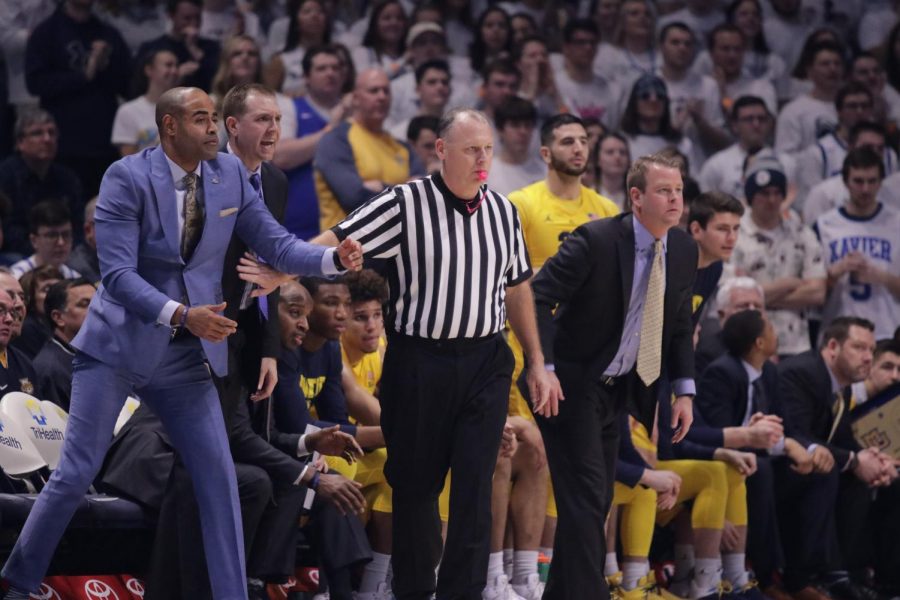

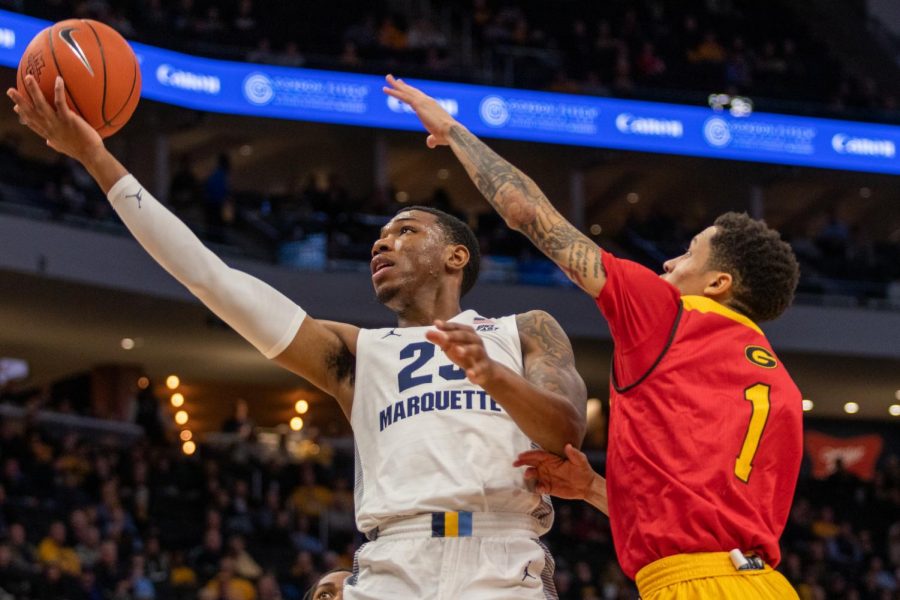
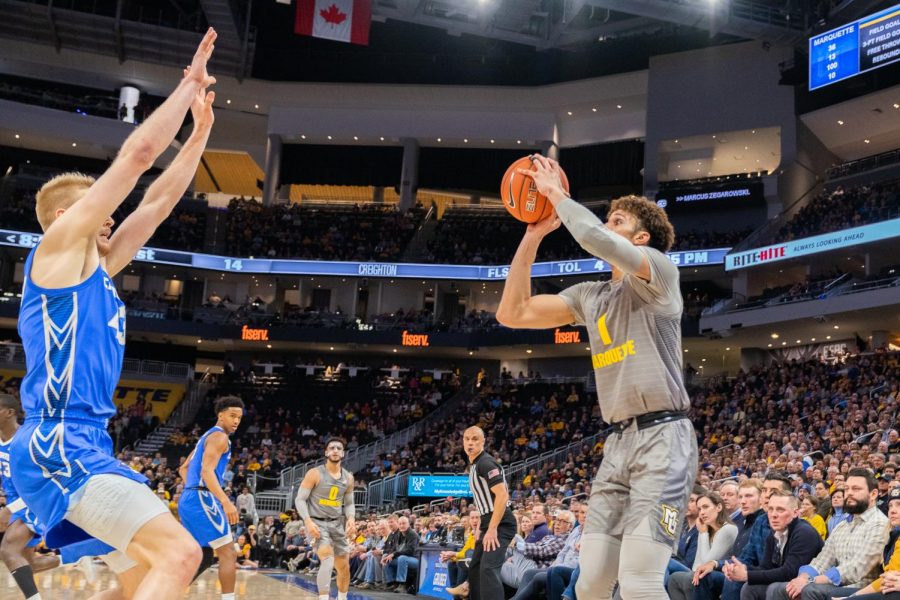
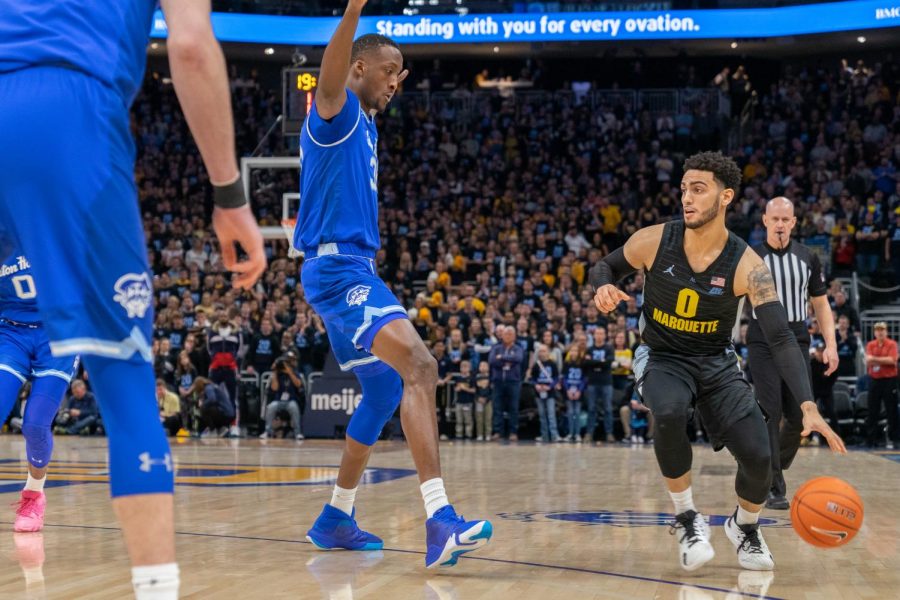
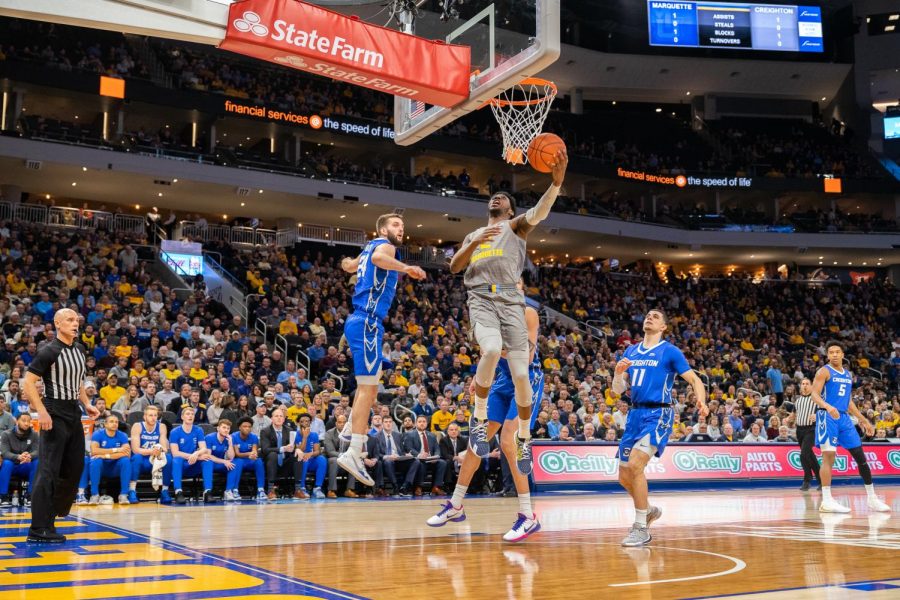
Stanton • Nov 12, 2019 at 12:12 pm
No one works harder or is more passionate than he is. His work ethics, loyalty and love for his players are unsurpassed.